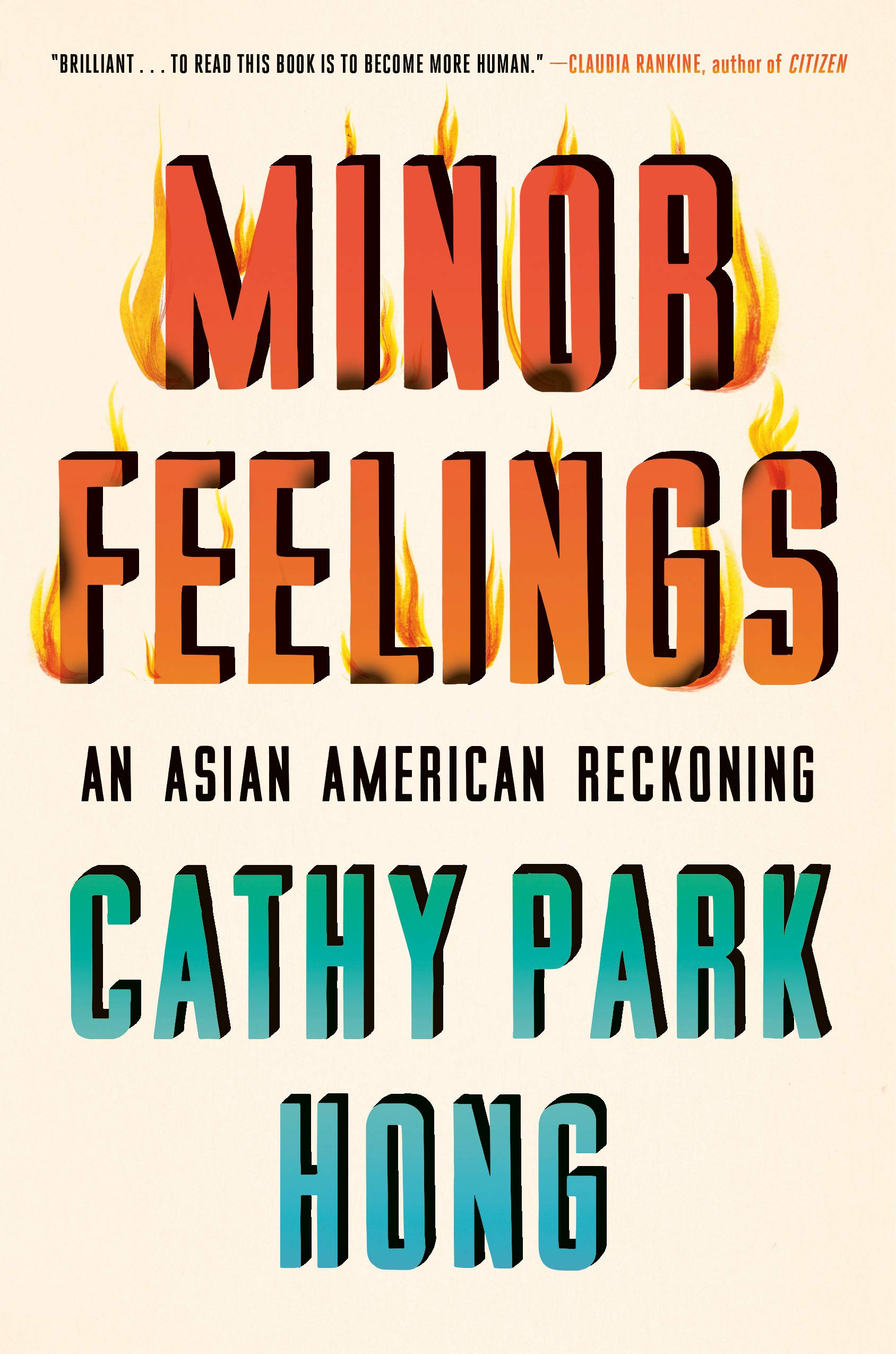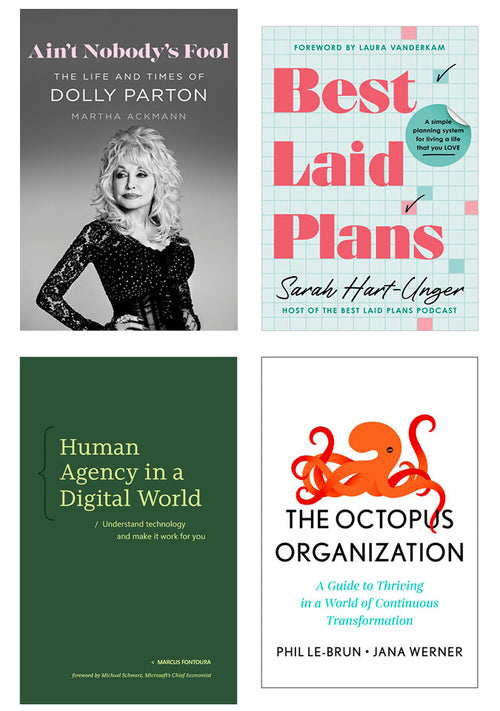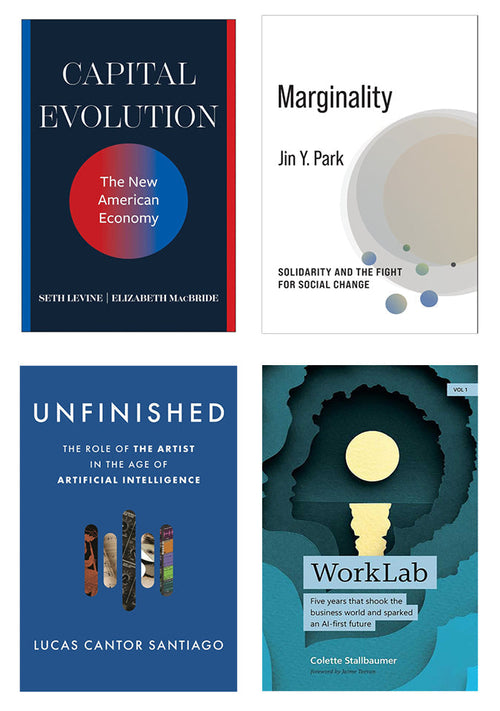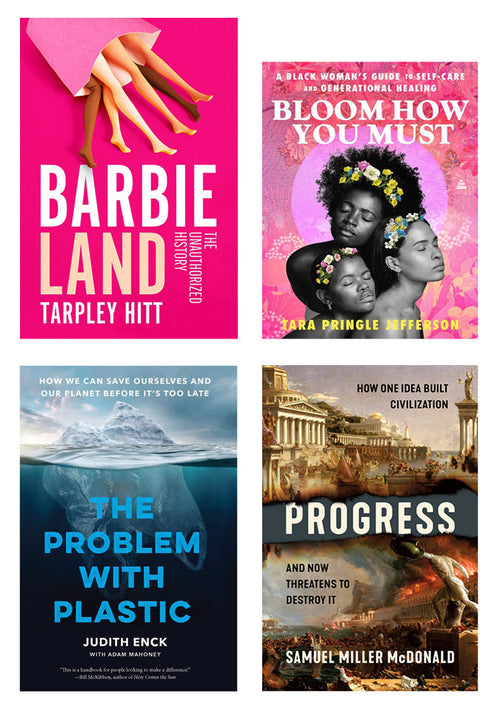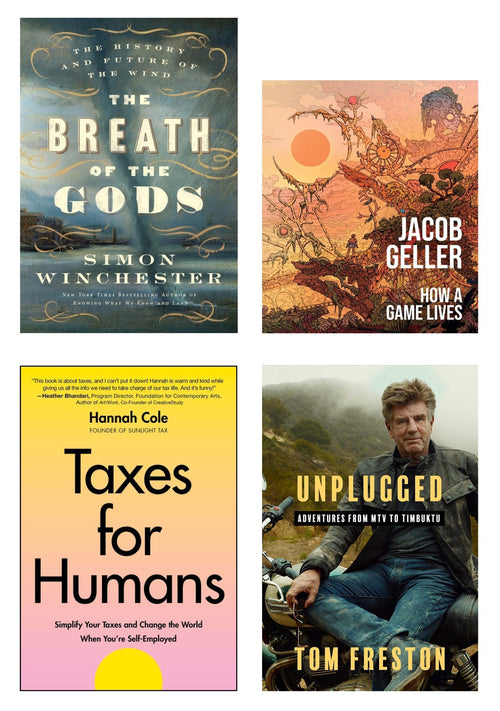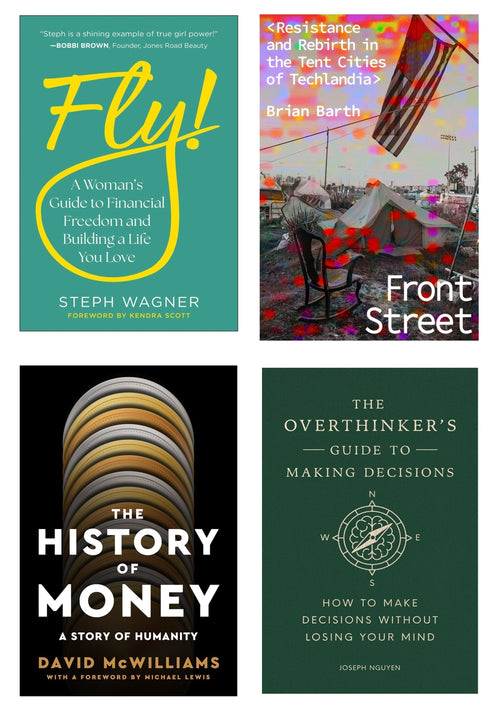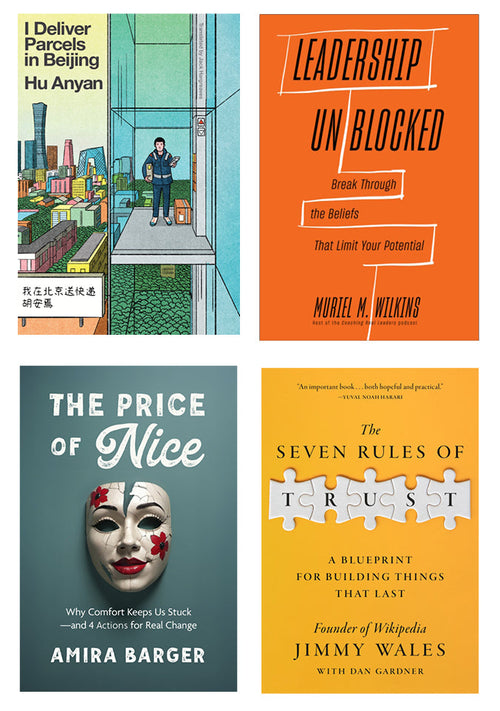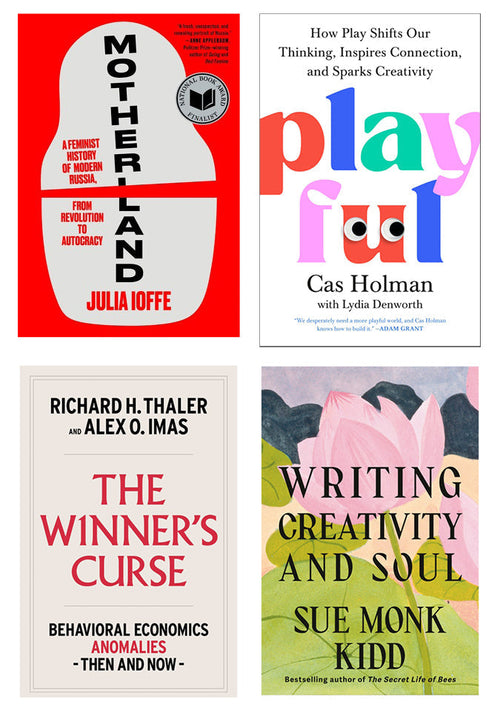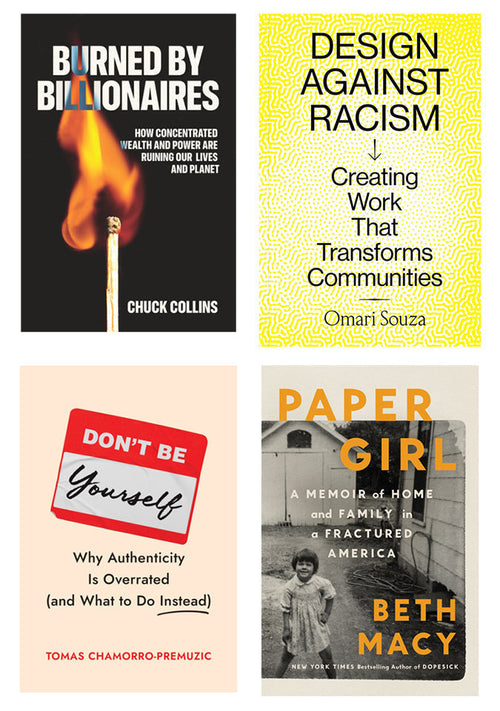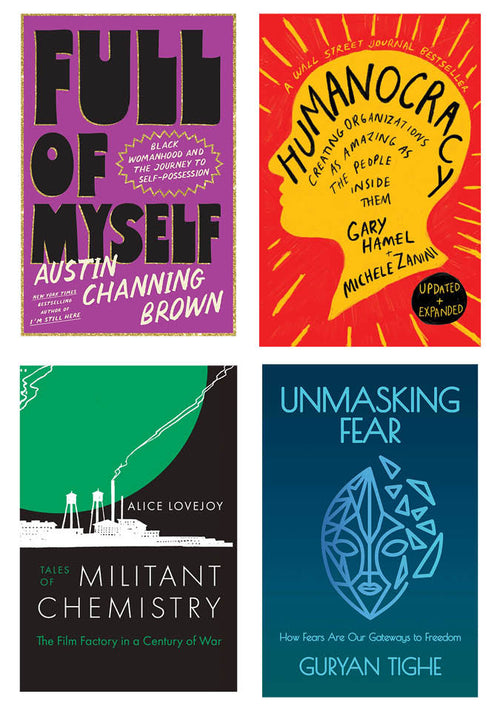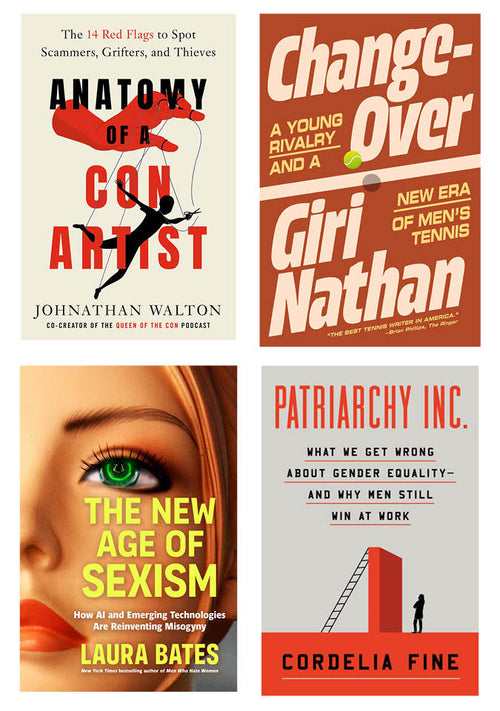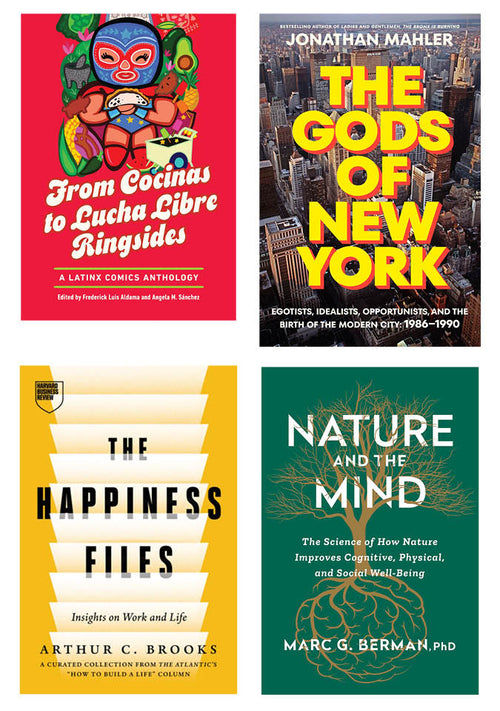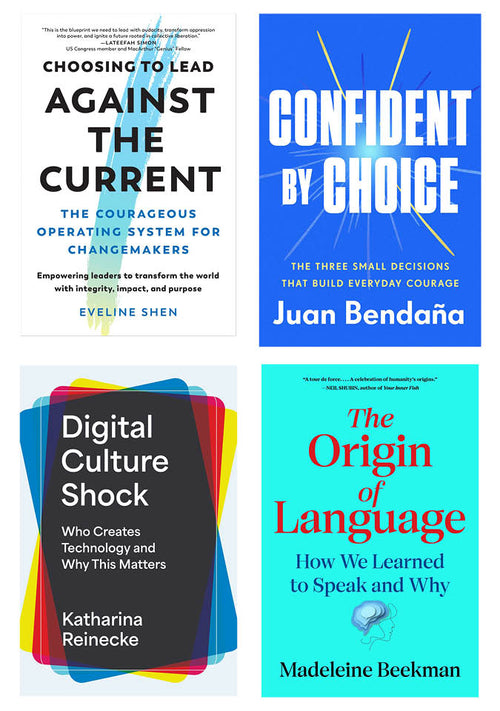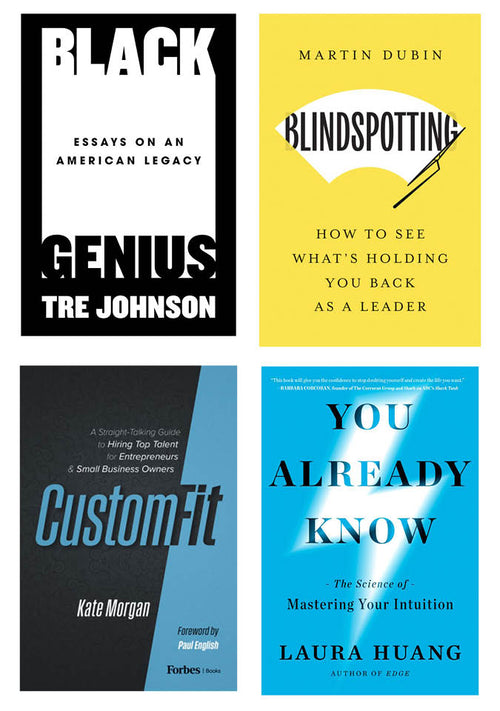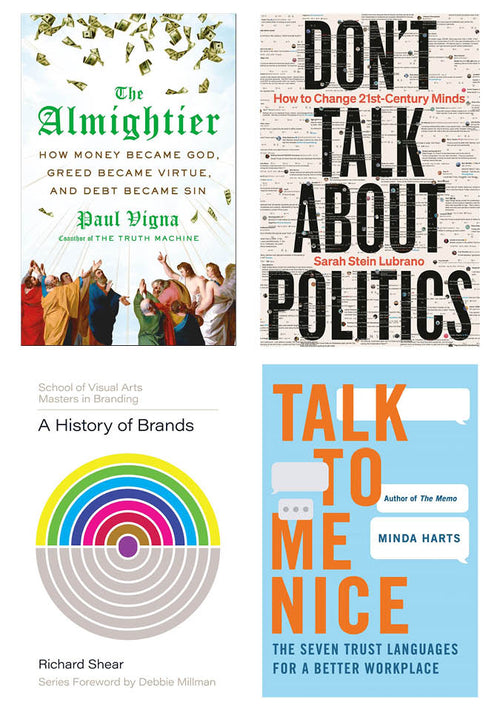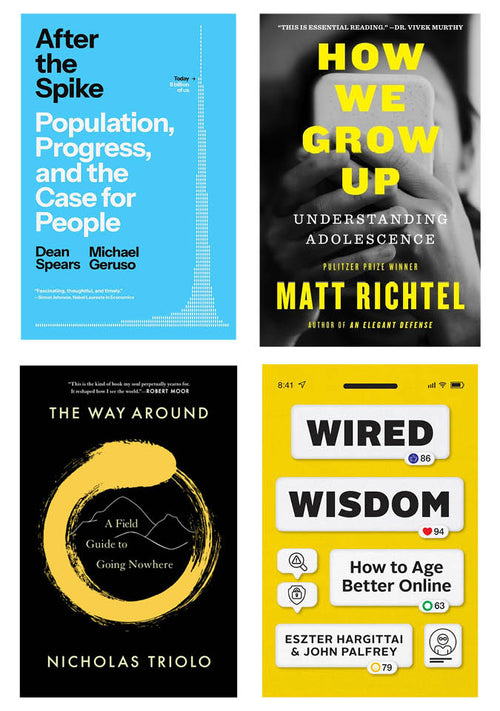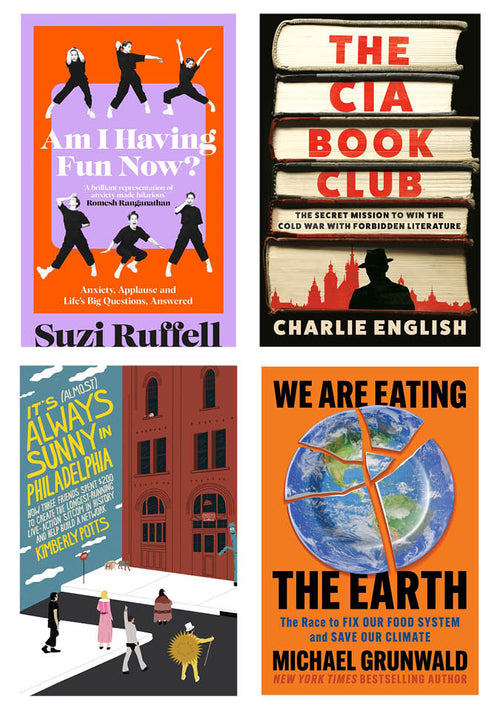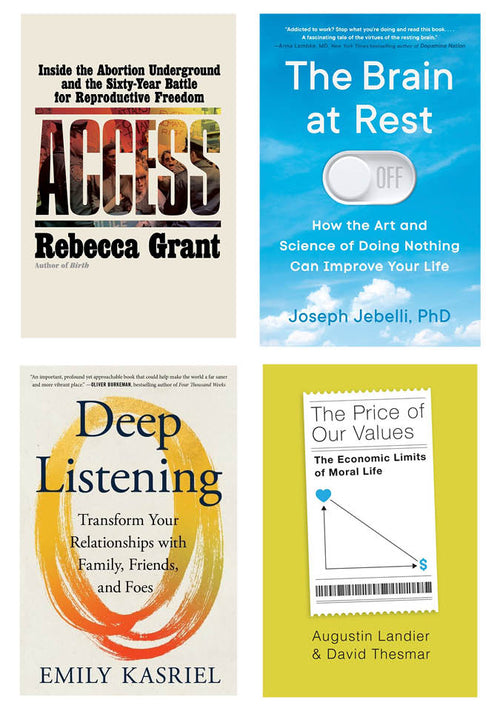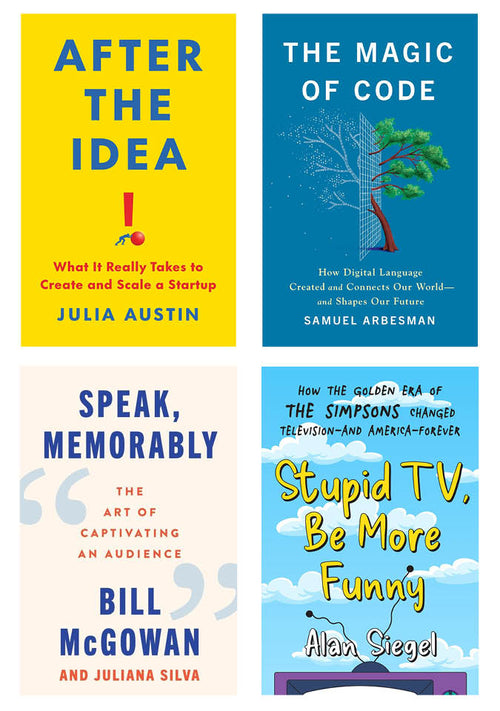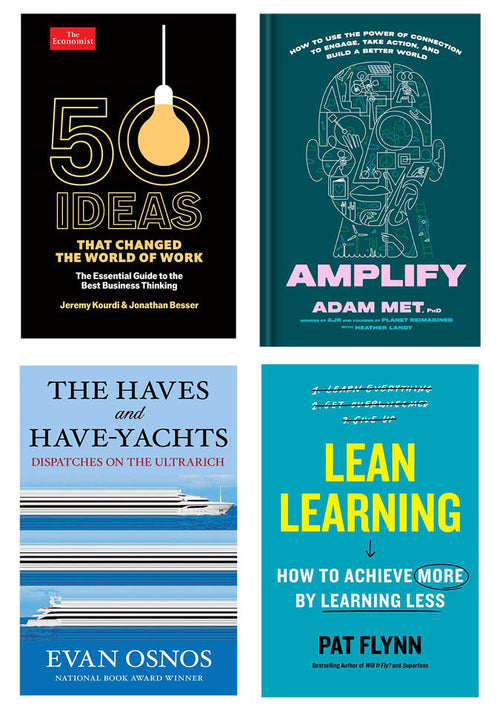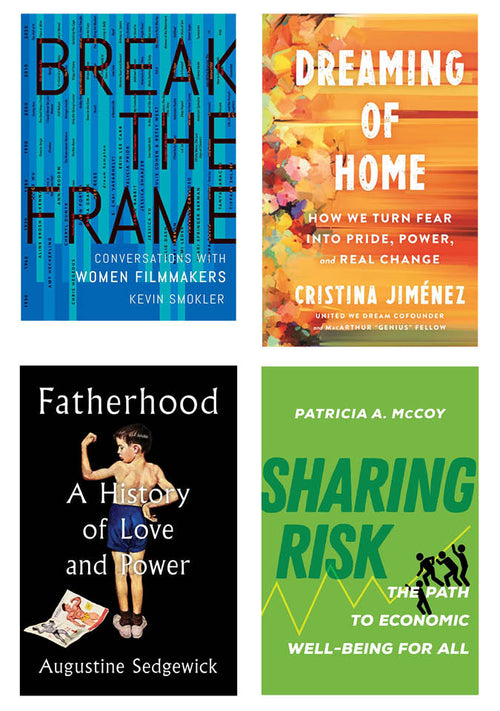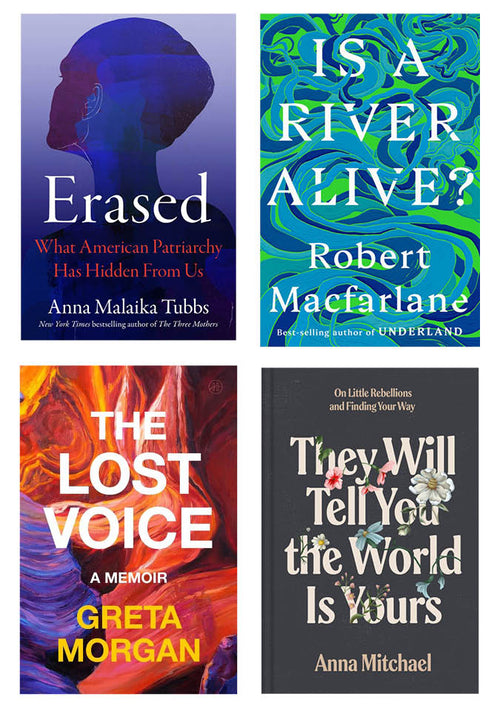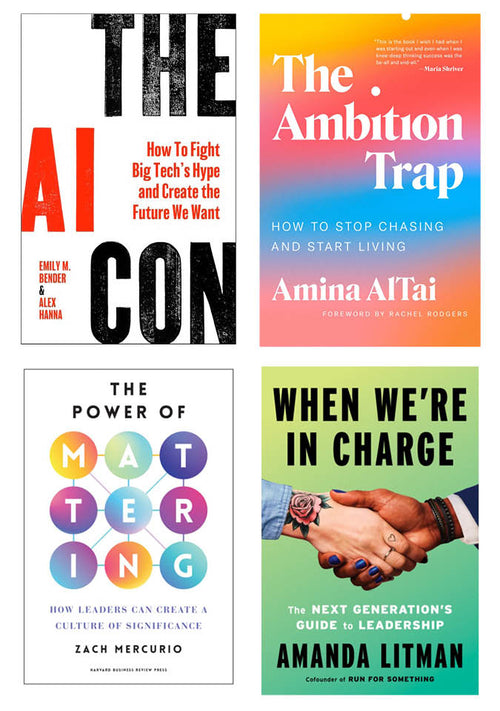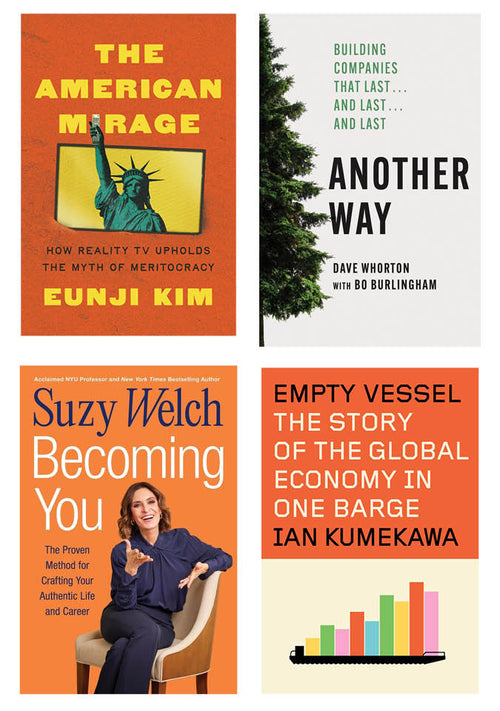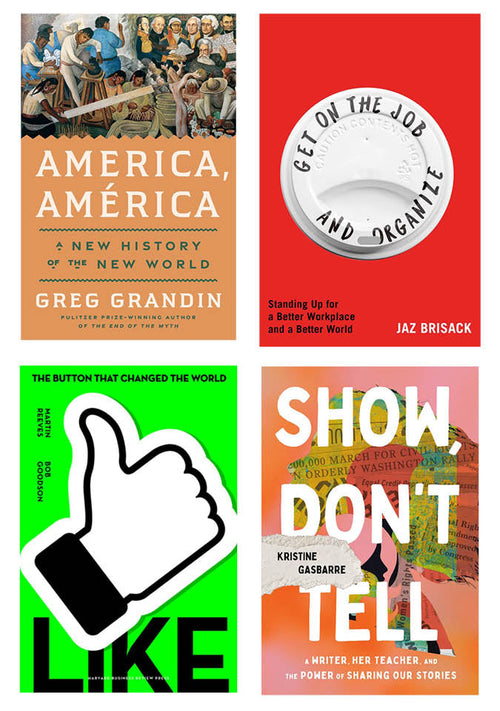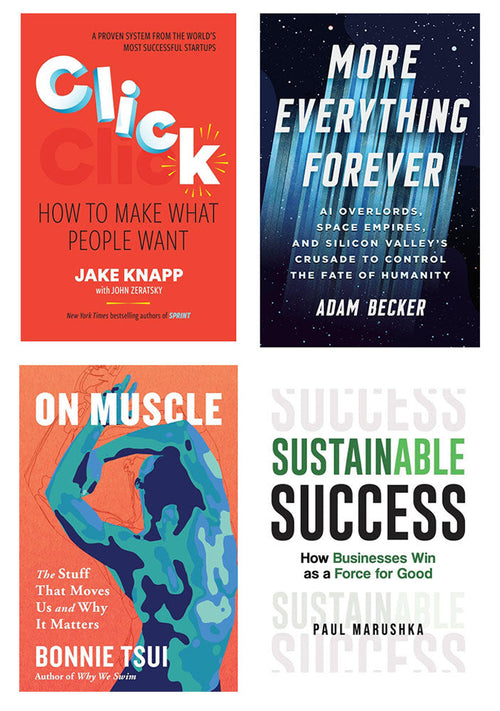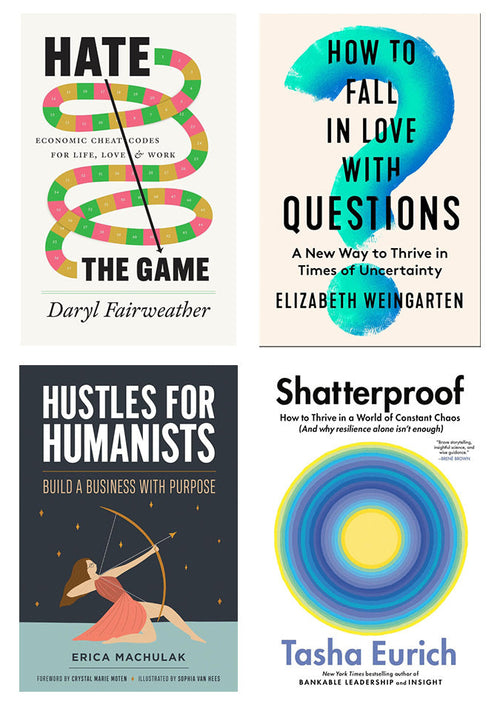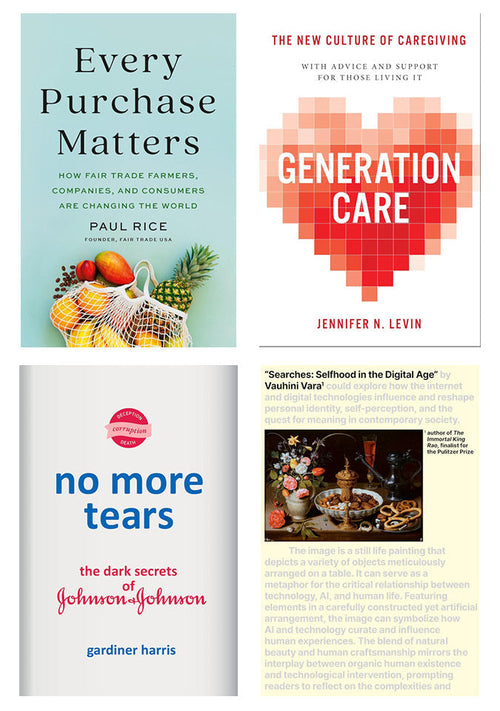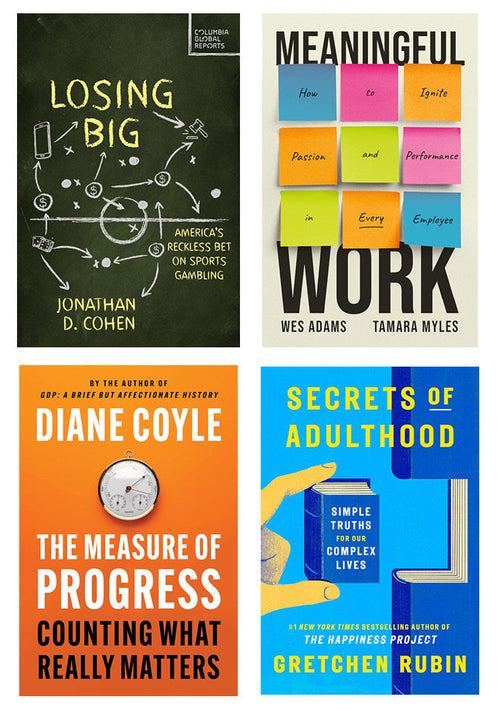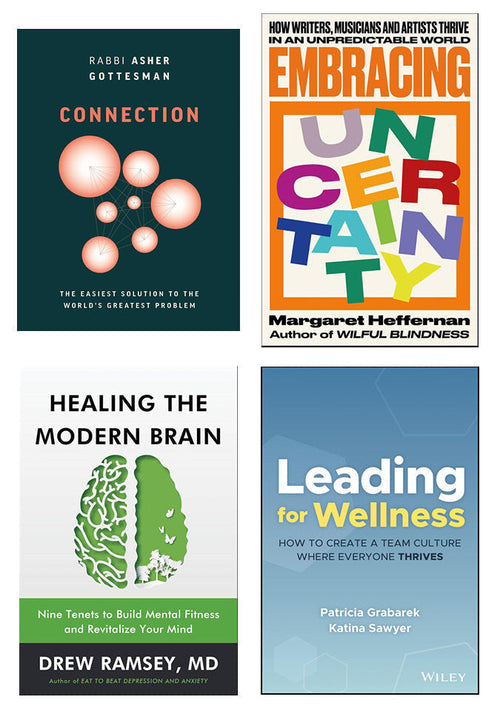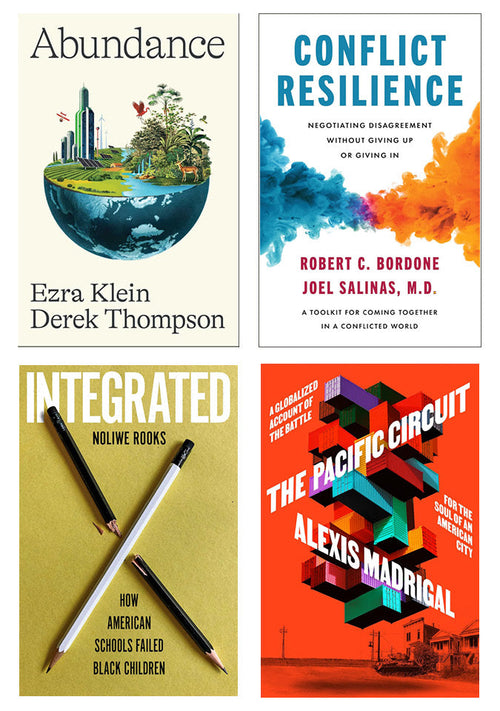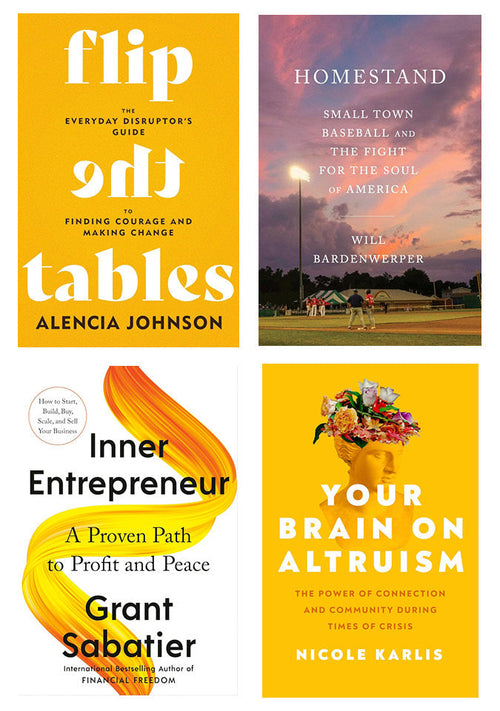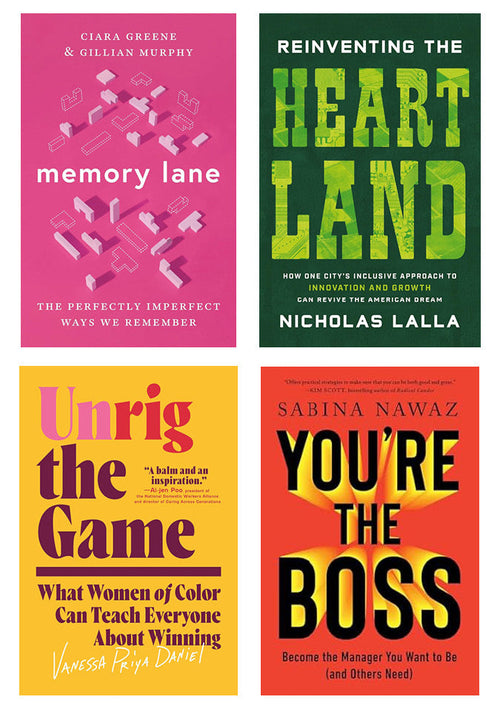Books to Watch | October 13, 2020
Each and every week, our marketing team—Marketing Director Blyth Meier (BRM), Digital Marketing Specialist Gabbi Cisneros (GMC), and Editorial Director Dylan Schleicher (DJJS)—highlights five new books we are most excited about.
This week, our choices are:

Good Guys: How Men Can Be Better Allies for Women in the Workplace by David G. Smith & W. Brad Johnson, Harvard Business Review Press
Even in the most friendly and open of offices, knowing what to say or do when a co-worker is ignored in a meeting or who is a victim of an ignorant joke is difficult. In this new book, social scientists David G. Smith and Brad Johnson provide a guide for those situations, compiling their personal experiences and research knowledge with quotes and experiences from men and women as well as direct advice from 59 female interviewees. Good Guys is a good reminder that saying nothing is just as bad as saying something harmful. Allyship is a practice. This straightforward and fairly compact book provides plenty of advice and examples of ways to promote gender inclusiveness in the workplace and beyond. As the first chapter "Men: The Missing Ingredient in Gender Equality" points out:
On a broader scale, workplace inequities in recruitment, hiring, and compensation create disadvantage not only for individual workers, but also for their families and broader national and global economies.
Workplace sexism is neither just an issue for women to tackle nor just an issue that affects those within a company. However, starting small, enacting positive change in the contained space of the workplace, can be an important start to equality across our society. (GMC)
In Bibi's Kitchen: The Recipes and Stories of Grandmothers from the Eight African Countries that Touch the Indian Ocean by Hawa Hassan with Julia Turshen, Ten Speed Press
Above my kitchen sink hangs a small framed cross stitch that says “Grandma’s Kitchen,” with a bunch of yellow flowers below it, and thread hanging down as a ribbon around the bouquet. Out of Mae Meier’s eleven grandchildren, I’m not sure how I got so lucky as to be the one who inherited this beauty, but it’s one of my prized possessions. So of course a cookbook from multiple grandmothers is finding a most welcome home in my kitchen.
Hawa Hassan, owner of Basbaas Somali Foods, and cookbook writer Julia Turshen collaborate on this one of a kind exploration of eight countries along the eastern coast of Africa that border the Indian Ocean, from Eritrea down to South African and over to the islands of Comoros and Madagascar. Instead of a simple regional overview, they choose to reveal the cuisine from the perspective of the chefs who are the engine: the grandmothers (or “bibis” in Swahili). “We believe that food connects the dots. We believe that grandmothers hold the world’s most important stories. We believe that home cooking is where culture is created and sustained.” Co-sign. Recipes like Quick Stewed Eggplant with Coconut (Kenya), Bariis (Somalia), and Sweet Vermicelli Noodles with Cardamom and Butter (Comoros) will no doubt burrow themselves into my heart.
What’s wonderful to see here are the food traditions that unite us across boundaries. While my grandma made Norwegian lefse, the bibis featured here make flatbreads and pancakes like kicha, sabaayad, ademi, and canjeero. Slightly different, but so much the same: simple, utilitarian, thrifty, and as comforting as a warm blanket in front of a fire. I lost my grandmother 15 years ago, and miss her and her cooking most desperately. Reading these stories from other grandmothers and getting the chance to experience their families’ food traditions is a fitting way to remember her legacy. (BRM)
The Queer Advantage: Conversations with LGBTQ+ Leaders on the Power of Identity by Andrew Gelwicks, Hachette Go
This past Sunday, October 11th, was National Coming Out Day, and for those 24 hours, my social media feed looked more promising than it had in quite awhile. I scrolled through narrative posts that recounted people's moments coming out to themselves, their friends and their families, and I scrolled through short and sweet posts that declared and celebrated people's LGBTQ+ identities. This week, celebrity fashion stylist Andrew Gelwicks continues and expands on this celebration in his new book The Queer Advantage.
From actor George Takei to entrepreneur and innovator Sue Youcef Nabi to former baseball star Billy Bean, the short profiles of and interviews with these leaders of various backgrounds makes it clear how embracing your identity, especially when external factors make it difficult, can help you succeed in other areas of your life. The book is a testament to manifesting the negative energy of being different, wrong, or strange into work that is beautiful and evolutionary. (GMC)
She Come By It Natural: Dolly Parton and the Women Who Lived Her Songs by Sarah Smarsh, Scribner
She is the most widely celebrated and successful woman in the history of country music, but she was and is more than that. Long before country music and its biggest stars went pop, she was a pop culture, even a global icon. She did it while staying true to the life and culture and struggles of the people in the Eastern Tennessee holler she grew up in, and found fans and fame among those who couldn’t be more removed from it.
She is, of course, Dolly Parton. She went to Nashville, and then Hollywood, built a career and made it big in both places, and then built the biggest tourist attraction in her home state—Dollywood—employing a lot of country flare and a bit of camp in doing so, but also employing “genuine Appalachian craftspeople, musicians, [and] artists,” people she knew were “connected with the land and the local culture.”
Sarah Smarsh, whose critically acclaimed and best selling memoir Heartland tells not only her own story, and that of her ancestors—especially the hardworking women—scratching out a living in rural Kansas, but of the rural poor and working class more broadly, was working on another piece as she wrote that book. It was about Dolly Parton, a woman who has been similarly reflecting the lives of the rural poor and working class through her music, and in her movie and television roles, for generations. The four part series Smarsh delivered to No Depression about Parton has now been released as a new book, She Come By It Natural. You’ll meet many of the women Smarsh grew up around again in this book, because the strength and struggle, the “organic feminism” they embody as women who didn’t choose to work, but had to, and who faced nearly constant abuse, insult, and low wages as they did so, is embodied in Parton’s persona, as well. Smarsh notes that none of these women, Parton included, would necessarily call themselves feminists, but Parton’s portrayal of the rural poverty and the survival skills women needed to make it amidst it has turned her into the “most powerful, least political feminist in the world.”
She found artistic success on stage, in the studio, and on screen, built a business empire, and used all that success, quietly, to give a lot back to the community over the decades, from the high school scholarships and disaster relief she has handed out in Tennessee, to opening a healthcare foundation in her native Sevier County named after the country doctor who delivered her, to the almost 150,000,000 books Dolly Parton’s Imagination Library has mailed to children since 1990. Since the COVID crisis hit, she has begun reading stories online for children and donated $1 million dollars to coronavirus research. It’s all enough to make one agree that the popular bumper sticker and final words of Smarsh’s book, “Dolly Parton for president” might actually be a really great idea. (DJJS)
The Upswing: How America Came Together a Century Ago and How We Can Do It Again by Robert D. Putnam, with Shaylyn Romney Garrett, Simon & Schuster
Books about the Gilded Age, as a broader whole or deep dives into specific individuals or instances, have been pouring out of publishing houses the past few years, and I have been eating (well at least reading) them up. None has more explicitly tied the lessons of that Age to our own than Robert D. Putnam’s new book, The Upswing, written with Shaylen Romney Garrett and released by Simon & Schuster this week. It is a structured, statistical, and scientific analysis of the troubling trends in our country toward increasing income inequality, partisan gridlock, and the abandonment of cultural common ground and cohesive community in an increasingly isolated and individualistic era—an era that echoes the original Gilded Age so hauntingly that a six page description the authors give of it near the beginning of the book reads like a litany of today’s ills.
The book is not only about the Gilded Age, however, but the nearly 130 years since then. It is about how we made decisions as a nation at that time to build a more equitable society, and did just that for three quarters of a century before we took a turn back in the 1960s, and have continued to regress since then. It is what they call the “I, We, I” curve, and they explain how it has manifested in our economy, our politics, our society, and our culture—devoting a chapter to each. It is also a reminder that it doesn’t have to be this way, that we should not except it as inevitable, or even normal:
To many older Americans today who lived through at least part of America’s upswing and then witnessed the extraordinary reversals […] the extreme inequality, polarization, social fragmentation, and narcissism of today—represented even in the highest offices of the land—are anything but normal. And thus they are understandably eager not to normalize it.
They also devote a chapter to race and a chapter to gender, and how even amidst the progress we made in the first half of the last century, it wasn’t evenly applied or achieved, and how we can and must do better this time around. It may be, in part, that those shortcomings led to our abandoning the progress that had been made. It is a reminder that:
Individuals’ freedom to pursue their own interests holds great promise, but relentlessly exercising that freedom at the expense of others has the power to unravel the very foundations of the society that guarantees it.
The two throughlines of America (and any exceptionalism it may exhibit) have always been personal freedom and a commitment to the greater whole. They seem at odds with each other, but they are inextricably intertwined—more like the roots we’ve put down in the soil than the pillars we’ve erected in our capital. But still, they will hold us up if we return to and nurture both. (DJJS)
What we're reading away from work:
I just finished reading Minor Feelings by Cathy Park Hong, which beautifully weaves together stories of her pivotal art school friendships, her attempt at stand-up comedy inspired by Richard Pryor, immigrants’ “proud heritage of bad English” which influences her poetry, and a close examination of the 1982 rape and murder of artist and poet Therese Hak Kyung Cha, to create a gut punch of a book about being of Asian descent in our country. The titular phrase “minor feelings” perfectly frames a previously hard-to-define set of emotions, for which I am forever grateful to Hong."
— Blyth Meier, Marketing Manager

